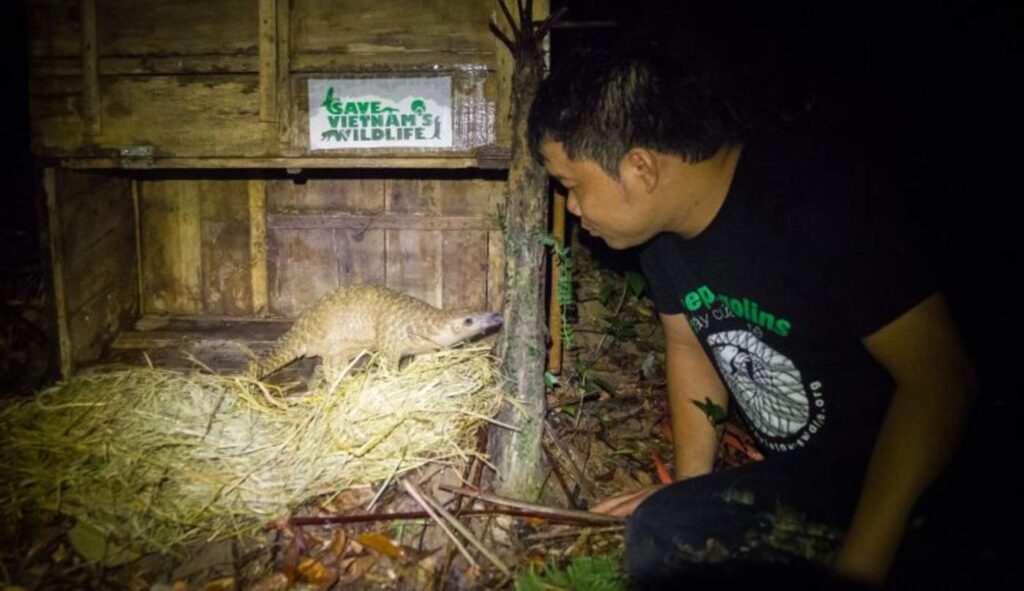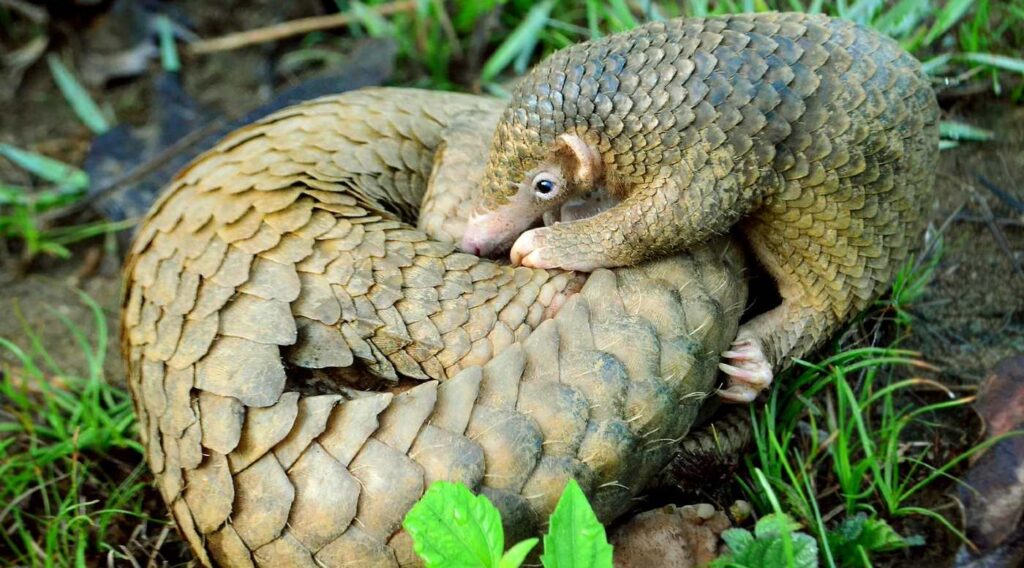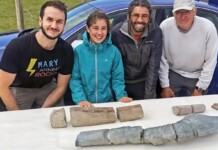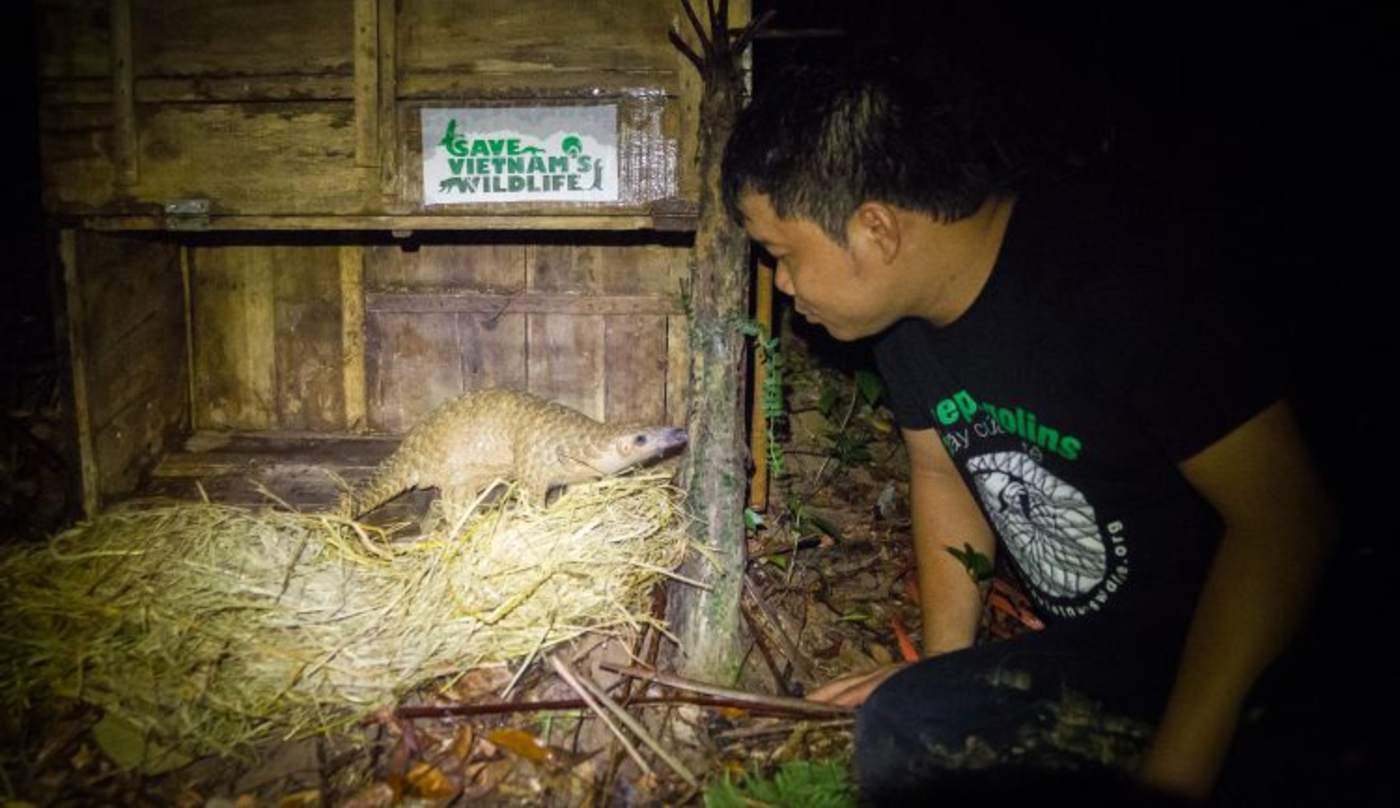
The 2021 winners of a major international environmental award have just been announced, and the list includes a Vietnamese conservationist who’s known for his vital work helping protect the pangolin—the world’s most trafficked animal.
Awarded annually to environmental heroes from each of the world’s six inhabited continental regions, the Goldman Environmental Prize honors the achievements and leadership of grassroots environmental activists from around the world, inspiring all of us to take action to protect our planet.
The Prize was founded in 1989 in San Francisco by philanthropists and civic leaders Rhoda and Richard Goldman.
In 32 years, the Prize has had an immeasurable impact on the planet—to date, it’s honored 206 winners from 92 nations, and has shined a light on many of the critical issues facing the Earth.
“When it comes to the environment, the global community of… leaders, thinkers, and philanthropists is only growing and becoming more sophisticated, more united, more powerful,” said Susie Gelman, vice president of the Goldman Environmental Foundation said in a statement.
“These Prize winners have so much to teach us about the path forward and how to maintain the balance with nature that is key to our survival. These phenomenal environmental champions remind us what can be accomplished when we fight back and refuse to accept powerlessness and environmental degradation.”
Thai Van Nguyen won the Asia award this year for his work in founding Save Vietnam’s Wildlife, which rescued 1,540 pangolins from the illegal wildlife trade between 2014 and 2020.
Nguyen also established Vietnam’s first anti-poaching unit, which, since 2018, has destroyed 9,701 animal traps, dismantled 775 illegal camps, confiscated 78 guns, and arrested 558 people for poaching—leading to a significant decline in illegal activities in Pu Mat National Park.
MORE: Invading Rats Were Finally Eradicated on 2 Galapagos Islands Thanks to Drone Partnership
Pangolins are the world’s most heavily trafficked mammal despite an international trade ban. Heavy demand for their meat, scales, and blood threatens pangolins with extinction; all eight pangolin species are on the IUCN Red List.
The Posterchild of the Illegal Wildlife Trade

Similar in appearance to armadillos, pangolins are the world’s most heavily poached and trafficked mammal—and three out of four Asian pangolin species are critically endangered.
Because their scales are believed to cure everything from asthma to cancer, pangolins are heavily used in Chinese and Vietnamese traditional medicine. While pangolin scales are a perfect defense against predators, when stressed or threatened, pangolins curl up into a ball, making them an easy target for poachers.
Research about pangolins is challenging, as they are highly susceptible to stress and notoriously picky eaters—and rarely survive in captivity for more than a few days.
They are also difficult to observe in the wild, and little data exists about their reproductive behavior and life span. Because of these gaps, there are no clear estimates about how many pangolins are left in the wild.
In the past decade, an estimated 1 million-plus pangolins were poached worldwide, and Vietnam is a particular hotbed: in 2004, 60 tons of live pangolins were seized in Vietnam.
A Total Commitment to Pangolin Protection
According to a bio released by The Goldman Foundation, 39-year-old Van Nguyen grew up near Cuc Phuong National Park and, as a child, witnessed a mother and baby pangolin being caught and killed by neighbors in his village. Nguyen resolved to make pangolin conservation his life’s work.
In order to reverse the fate of the pangolins, Nguyen set out to stop poaching and educate the Vietnamese public on the importance of pangolin conservation. His efforts began with a sophisticated outreach and education campaign: he wrote husbandry manuals for rescued pangolins, published research in peer-reviewed journals, attended international workshops, and developed Vietnam’s first reintroduction and tracking protocols for pangolins.
Nguyen also opened the Carnivore and Pangolin Education Center, the first of its kind in Vietnam, in order to provide wildlife conservation courses to students and the general public. And he educated customs officials, border guards, and rangers on wildlife laws and how to properly care for seized pangolins.
LOOK: Scientists Discover a New Brown Species They Named the ‘Chocolate Frog’ – And it’s Adorable
Nguyen didn’t stop there; he established Vietnam’s first Asian Pangolin Rehabilitation Center, which focuses on rehabilitating pangolins in captivity.
To care for rescued pangolins, which often arrive in critical condition, he used grant funds to build two fully equipped veterinary clinics with hematology and ultrasound capabilities.
He’s had an 80% survival rate among pangolins with severe and septic wounds. The clinics also serve as research facilities, where his team has learned how to improve medical care for injured pangolins and identified 12 species of parasites in pangolins—and corresponding treatment plans.
READ: Some Generous Apes May Help Explain The Evolution Of Human Kindness
SVW collaborates directly with other rescue centers and has successfully rehabilitated and released nearly 500 animals. Nguyen has expanded his rescue center to also rescue carnivores, primates, and turtles.
To better understand the poaching supply chain, Nguyen worked with poachers to take him into the forest to show him how they track and capture pangolins. He also visited markets, restaurants, and doctors of traditional medicine to better understand the demand for pangolins.
In 2018, Nguyen created Vietnam’s first-ever anti-poaching unit, which is co-managed by a local NGO and government, through which he personally trains rangers on wildlife conservation, animal identification, GPS skills, basic martial arts, and survival skills.
The unit cooperates with government rangers on missions throughout 235,000 acres of primary forest in Pu Mat National Park; on trips lasting up to six days, teams destroy illegal camps and wildlife traps, confiscate weapons, and arrest poachers.
SVW is the first organization in the world to implement monitoring of released pangolins using drone technology.
Nguyen has also looked to global strategies and worked with the management authority of the Convention on International Trade in Endangered Species (CITES) in 2016 to upgrade pangolins to Appendix I, a designation that bans international trade for animals most threatened with extinction.
CHECK OUT: Flying Squirrel as Big As a Cat Discovered in Himalayas, ‘One of the least known mammals on Earth’
Between 2014 and 2020, Nguyen’s leadership raised awareness of pangolin poaching and resulted in the rescue of 1,540 pangolins from the illegal wildlife trade.
SVW staff report an 80% decrease in illegal poaching activities since the unit’s establishment. His partnerships with government, law enforcement, scientists, veterinarians, and fellow activists have been critical to his success.
As one of the few people in the world working on pangolin conservation and rehabilitation, Nguyen is filling a crucial space for understanding and protecting this critically endangered animal.
(MEET Nguyen in the video below.)
SCALE UP the Good News in Friends’ Feeds—Share This Story…





















Keep up the good work!! These little guys look a lot like our armadillos in Oklahoma 🙂
Thank you for your work! The pangolins are grateful and so is all of nature!!